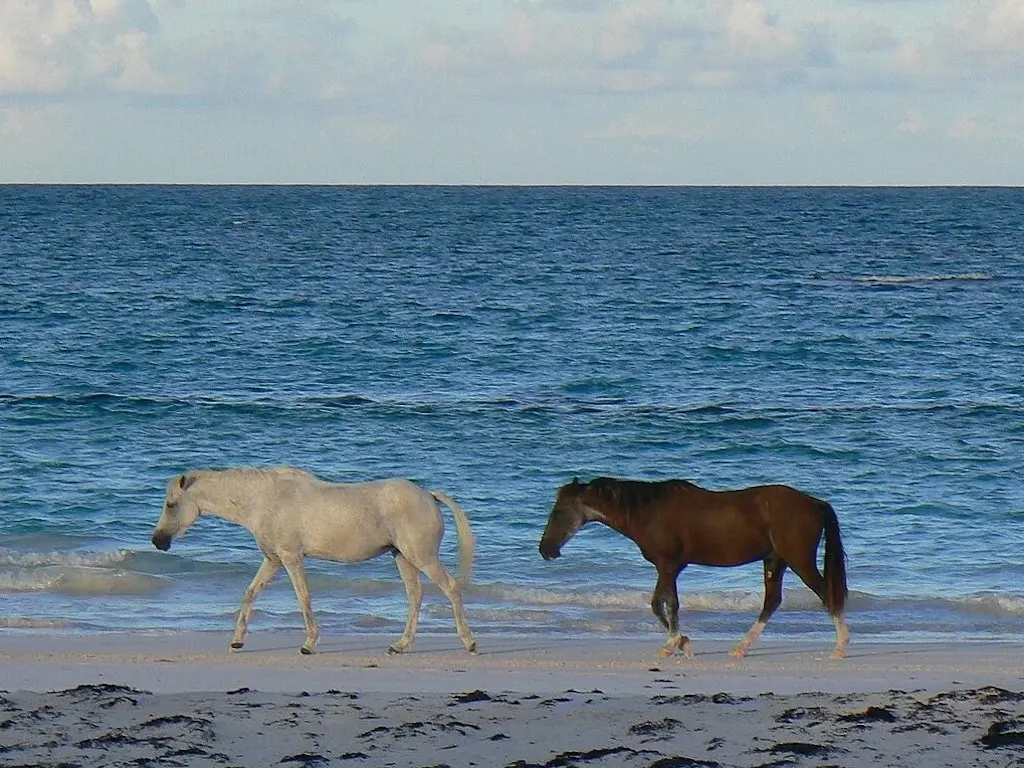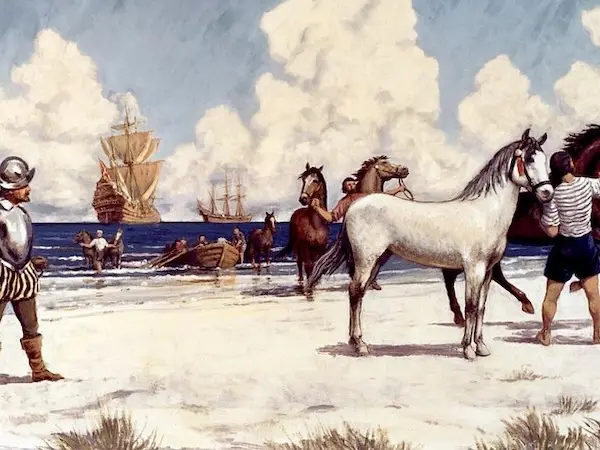
Unfortunately as of 2015 the Abaco Barb became extinct. A noble bloodline that managed to survive for centuries in the Bahamas, this is doubly sad because their genetics were incredibly pure.
A Little Backstory
There are not many breeds considered native to the Bahamian islands but the few that are (were) come from the mounts of Spanish explorers during the 15th and 16th centuries. The horses found on Abaco possessed particularly pure strains of DNA from their ancestors, making them historically interesting for more than just horse lovers.

Like many breeds found in the Americas, they were tough due to simple survival of the fittest. Their ancestors were selected for the journey based on their robust nature and only the strongest of those survived the journey to reproduce in the new world. The Abaco Island horses survived a long time in a climate not particularly well suited for horses.
What Makes Them Special
Beyond their important spot in the history books of horses in the Americas, this breed survived for centuries on these islands. Land was set aside to protect and maintain the small herd and every effort was made to let mother nature take it’s course. Instead of flourishing as they must have over the years, they slowly quit reproducing fast enough to support future generations. It is mentioned hurricanes had a notable effect on their numbers, not the storm directly, but the aftermath seems to have affected their breeding patterns. Hurricane Floyd in 1999 was the final straw, they just quit breeding.
A Future for Abaco’s Barb Horses?
It is possible that in the future this particular strain of Barb could be restored. Their DNA has been preserved for restoration in a plan backed by the Bahamian government. When this might happen is unsure, but we hope they will keep it on the table. To learn more about this interesting breed, be sure to check out the Abaco Barb page.
Quick Facts
The only breed we could find from the Bahamas.
Not listed in the DAD-IS and the breed is extinct.
If people had truly wanted to save these horses, they should have been removed from Abaco and sent to the United States. I have 3 acres, and would have been overjoyed at having a couple.